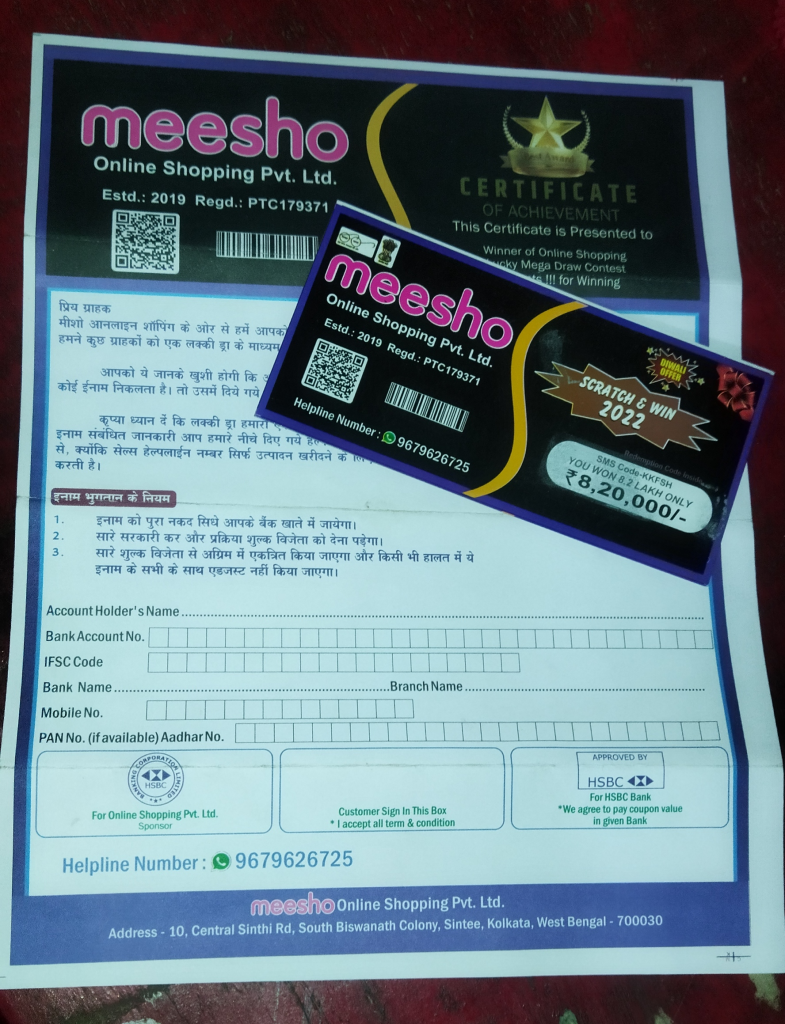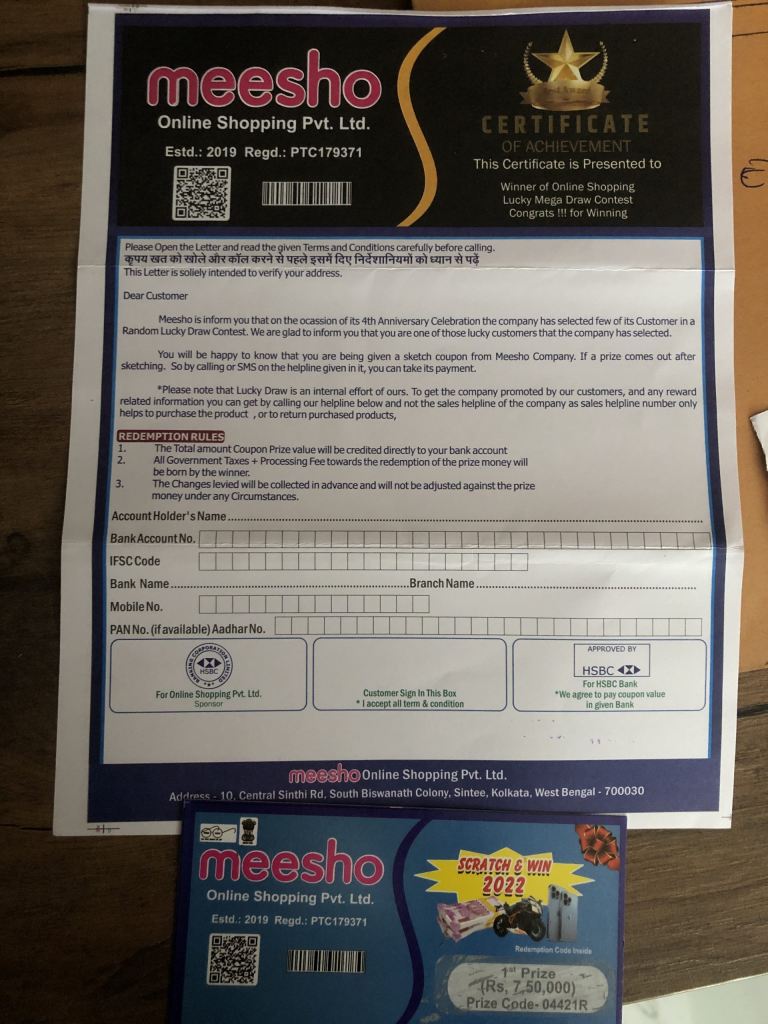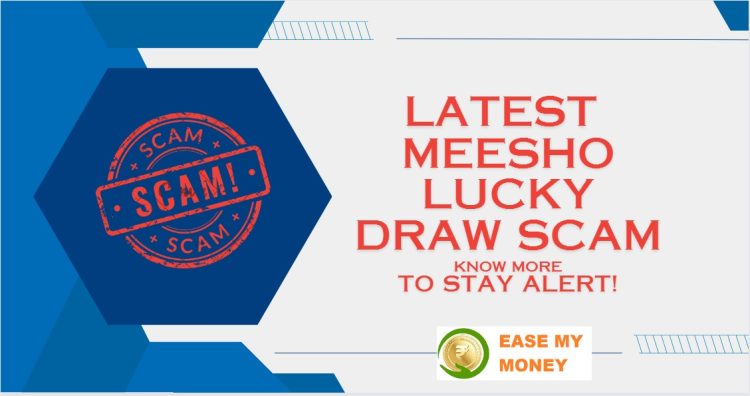Online shopping has revolutionized the way we shop, offering convenience and accessibility like never before. However, amidst the convenience lies the lurking threat of online shopping scams. As more transactions move online, scammers adapt their tactics to exploit unsuspecting consumers. It’s crucial to be aware of the risks and take proactive measures to safeguard yourself against online shopping scams. One such example is The Meesho Lucky Mega Draw scam.
Understanding the Meesho Lucky Mega Draw Scam
The Meesho Lucky Mega Draw scam involves fraudulent schemes claiming to offer lucrative prizes through letters containing scratch cards claiming to be sent from Meesho Online Shopping Pvt. Ltd. Scammers entice victims with promises of winning expensive gifts such as luxury Cars and extravagant prize/money, in exchange for participation or personal information.
Key features of the scam letter
- the envelope is labelled as URGENT LETTER with your name, address and mobile number.
- it contains a letter claiming that you are recognised as a valued customer of Meesho and gives you a chance to participate in its Mega Lucky Draw.
- it contains a scratch card/lottery tickets with a QR Code and a bar code.
- the letter instructs you to scan the QR code to participate in the lottery in order to win Mega prizes such as money and luxury Cars.
- the letter also provides fake helpline numbers and contact information claiming as the only way to contact regarding the Lucky draw.
Sample images of the letter



Tips to Avoid Meesho Online Shopping Scams
- always report the scammer immediately at legalsupport@meesho.com
- use only Meesho App for shopping on Meesho Online Shopping Pvt. Ltd
- use strong passwords for your Meesho account
- always check product ratings and reviews
- research new and sketchy “too good to be true” offers
- ensure that you do not click on any suspicious links or any unauthorized web portals or social media posts
- Watch out for any suspicious calls, fake messages, unsolicited or spam e-mails and any communication sent to you by the unauthorized person(s) asking you to share any personal information malafidely under the pretext of processing refund claims, soliciting to participate in any unauthorized offers, lotteries, contests or scheme or asking for payment of money for such participation or to receive any award thereof or offering any job opportunity
- be vigilant, do not divulge any personal or sensitive data including bank details such as OTP, UPI/ATM PIN, CVV or credit/debit card details to anyone claiming to be a Meesho’s representative
- Avoid paying any money or deposit funds to any person wrongfully claiming to be Meesho’s representative or job consultant(s).
Note: Neither Meesho nor any of it’s representative or authorized recruitment consultants take money or any other kind of payment for jobs.
Educating Yourself and Others
Spreading awareness about online shopping scams is essential in combatting fraudulent activities. By familiarizing themselves with scam patterns and educating others, individuals can contribute to a safer online ecosystem.
In conclusion, awareness and vigilance are paramount in avoiding online shopping scams like the Meesho Lucky Mega Draw scam. By staying informed, exercising caution, and advocating for a safer online environment, consumers can protect themselves and others from falling victim to fraudulent schemes.
FAQs
Q1: What makes the Meesho Lucky Mega Draw scam particularly deceptive?
Ans: The scam capitalizes on the popularity of the Meesho platform and entices victims with the promise of winning valuable prizes.
Q2: How can consumers verify the authenticity of online promotions?
Ans: Consumers should cross-check promotions with official sources and be wary of offers that seem too good to be true.
Q3: Are there specific measures consumers can take to protect their personal information while shopping online?
Ans: Yes, consumers should avoid sharing sensitive information unnecessarily and opt for secure payment methods to safeguard their data.
Q4: What should consumers do if they suspect they’ve fallen victim to an online shopping scam?
Ans: Victims should immediately cease communication with the scammer, document evidence of the scam, and report the incident to relevant authorities.
Q5: How can consumers contribute to raising awareness about online shopping scams?
Ans: Consumers can share information about scams on social media, participate in online forums, and educate friends and family about potential risks.

